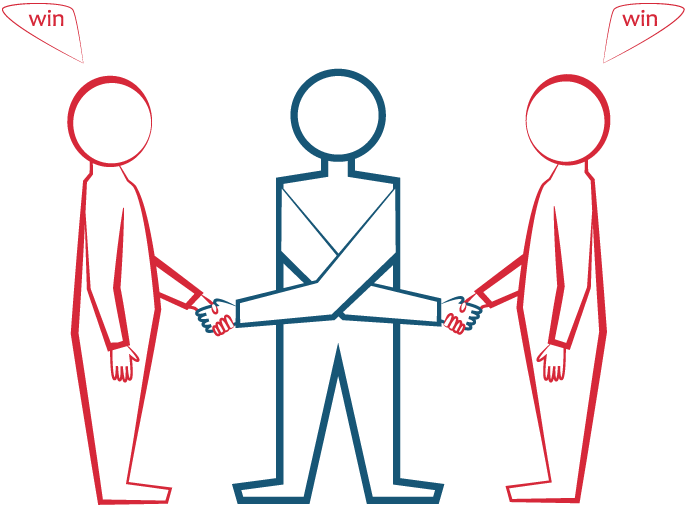JOEL LAVINTMAN MEDIATION
When you need a little help settling a dispute, your first thought will likely be to go to court.
Bringing another party to court is expensive, time consuming and stressful.

Bringing another party to court is expensive, time consuming and stressful.

Mediation, which is one form of Alternative Dispute Resolution, differs from court proceedings in that it is simple, informal, flexible and economical. It can be a way to avoid court proceedings.

It provides the opportunity for parties to agree terms and resolve issues by themselves, without the need for legal representation or court hearings.

The mediator acts as a third party, with the aim of facilitating communication between the disagreeing parties in order to find a suitable means of settling the dispute.
Civil facilitative / hybrid (may include mediation, mini-trial, or other)
In Facilitative Mediation, I do not evaluate a case or direct the parties to a particular settlement. Instead, I will facilitate the conversation between the parties. You are in control both what will be discussed and how your issues will be resolved. As your mediator, my focus will be on providing a structure for your discussion in order to help you find a resolution to your dispute.
Online mediation employs online technology to provide disputants access to me, as your mediator, and to each other despite geographic distance, disability or other barriers to direct meeting. Online mediation can also be of use when the value of the dispute does not justify the cost of face-to-face contact. Online mediation can also provide benefits in pursuit of the resolution of your dispute.
Civil adjudicative / evaluative (may include arbitration, consensual special magistrate, summary jury trial, early neutral evaluation, non-binding advisory opinion, neutral fact finder)
Arbitration, as opposed to mediation, is the submission of a dispute to an unbiased third person, the arbitrator, designated by the parties to the controversy, who agree in advance to comply with the arbitrator’s award—a decision to be issued after a hearing at which both parties have an opportunity to present evidence and testimony.
Evaluative Mediation focuses on providing the parties with an evaluation of their case and directing them toward settlement. During an evaluative mediation process, when the parties agree that the mediator should do so, the mediator will express a view on what might be a fair or reasonable settlement. During an Evaluative Mediation, the mediator does not make an award. S/he evaluates the strengths and weaknesses of each side’s argument and makes some predictions about what would happen should they go to court.
Fill out the form to reach Joel Lavintman Mediation
© 2019 Joel Lavintman Mediation. All rights reserved.